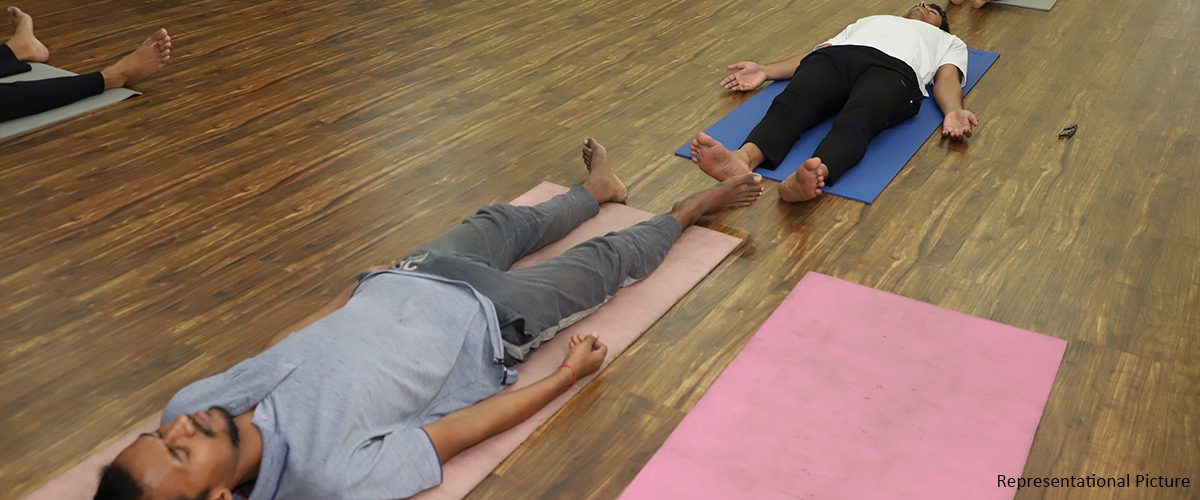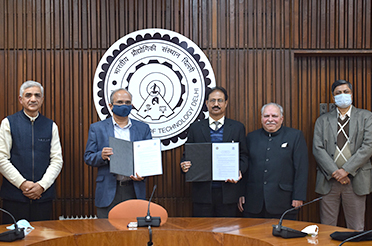Publish Date: 19th February 2021
Yoga practitioners had lower stress, anxiety and depression during COVID-19 lockdown: IIT Delhi study
Share this on

Yoga practitioners had lower stress, anxiety and depression, higher wellbeing and a higher peace of mind during 4-10 weeks of lockdown due to COVID-19 outbreak last year as compared to the non-practitioners, a study by IIT Delhi researchers has shown.
The study titled ‘Yoga an effective strategy for self-management of stress-related problems and wellbeing during COVID-19 lockdown: A cross-sectional study’ was recently published in a highly reputed journal PLOS ONE.
The research study was carried out by a team of scientists from the National Resource Centre for Value Education in Engineering (NRCVEE), an academic centre at IIT Delhi, which promotes interdisciplinary research in various areas of inner sciences and aims in cultivating a strong value culture among the students and the faculty.
The research team includes Dr. Pooja Sahni, NRCVEE; Mr Nitesh, NRCVEE, Dr. Kamlesh Singh, Professor at Humanities and Social Sciences Department, IIT Delhi and Prof. Rahul Garg, Head, NRCVEE.
The IIT Delhi researchers led by Dr. Pooja Sahni carried out the study on a total of 668 adults during COVID-19 lockdown, between April 26 and June 8, 2020. The participants were grouped as; yoga practitioners, other spiritual practitioners, and non-practitioners based on their responses to daily practices that they follow. Yoga practitioners were further examined based on the duration of practice as; long-term, mid-term and beginners.
The long term practitioners reported higher personal control and lower illness concern in contracting COVID-19 than the mid-term or beginner group. The long- term and mid-term practitioners also reported perceiving lower emotional impact of COVID-19 and lower risk in contracting COVID-19 than the beginners.
The general wellbeing was reported higher by the long term and mid- term practitioners than the beginners group. Further, the long term practitioners were found to have highest peace of mind, lowest depression and anxiety with no significant difference in the mid-term and the beginner group.
“While yoga has been recommended as one of the ways to manage stress during COVID-19, there was lack of empirical evidence to support the claims. Our study has mapped the effect of yoga on the cognitive and emotional problems of COVID-19, besides showing beneficial effects of yoga on general wellbeing during adversity. Evidence supports that yoga was found as an effective self- management strategy to cope with stress, anxiety and depression, and maintain wellbeing during COVID19 lockdown”, said Dr. Pooja Sahni.
Dr. Kamlesh Singh, Associate Professor at Humanities and Social Sciences Department, IIT Delhi and one of the authors of the study feels that evidences from this research can be used by the health care practitioners to include yoga as an alternate therapy for self-management of stress related problems during conditions like COVID-19 pandemic.
Stressing on the need to include yoga and other forms of such practices in the higher education curriculum, Prof. Rahul Garg, Head, NRCVEE said this would be beneficial, as it has been proved that the Yoga can help in facing the various challenges of life.
Press Release Date: 18-02-2021








